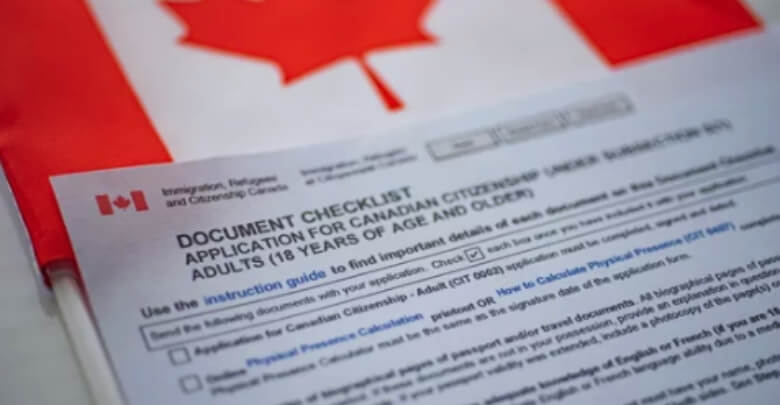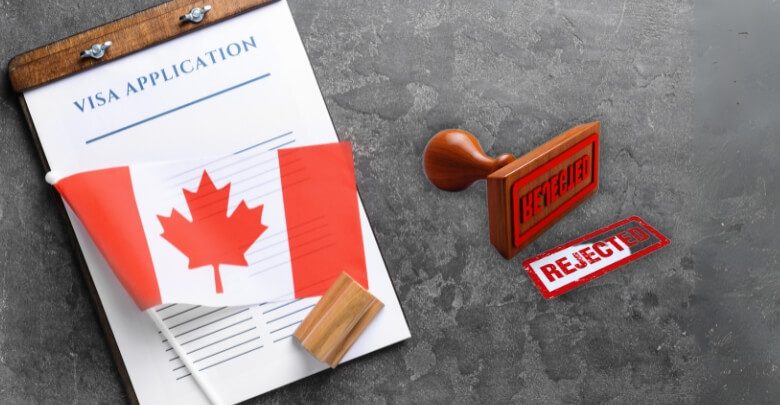Planning for a business conference involves anticipation and preparation, from packing to organizing schedules. But what happens when that eagerly awaited event gets canceled? Amidst the disappointment, a pressing question often arises: “Can I still use my Canadian business conference visa to travel even if the conference is cancelled?”
The good news is, in many cases, you can. Canadian immigration authorities often permit visa holders to proceed with their travel plans even if the conference falls through. It’s essential to verify this with the relevant authorities to ensure compliance with specific guidelines.
The goal of this article is to dig deeper into this query and provide clarity and insight so you can guide such situations seamlessly. Here’s what you need to know to make informed decisions about your travel plans if you’re faced with this dilemma.
How Do I Know if My Conference Visa Is Canceled?
Suddenly, you’re thinking if your conference visa got canceled, and you’re all set to attend the conference. Here’s what you need to know:
- Check Your Email: Take a peek into your inbox. The embassy or consulate that processed your visa should have sent you an email if there were any changes to your visa status.
- Contact the Embassy or Consulate: If there’s no email, don’t fret! You can always reach out to the embassy or consulate directly. Give them a call or shoot them an email. They’ll be able to confirm whether your visa is still valid or if it’s been canceled.
- Visit the Embassy Website: Sometimes, embassies and consulates update their websites with visa information. Take a stroll through their website to see if there are any announcements about visa cancellations or changes in policy.
- Check Your Visa Status Online: Some countries have online portals where you can check the status of your visa application. Log in to see if there’s any update regarding your conference visa.
- Look for Travel Alerts: Keep an eye out for any travel alerts or advisories issued by your government or the host country. These alerts often contain important information about visa changes or cancellations.
- Double-Check Your Documents: Give your visa documents a once-over. Make sure there are no indications that your visa has been canceled, such as stamps or annotations.
What Are the Conference Visa Rules in Canada?
In Canada, conference visa rules fall under the Visitor Visa category, specifically the Temporary Resident Visa (TRV) or Electronic Travel Authorization (eTA) depending on the applicant’s nationality. Here’s a breakdown:
Temporary Resident Visa (TRV)
- If you come from a country that requires a visa to enter Canada, you’ll need to apply for a Temporary Resident Visa (TRV) to attend a conference.
- The TRV allows you to stay in Canada for a limited period, typically up to six months.
- You can apply for a TRV online or through a paper application at a Visa Application Centre (VAC) in your country.
Electronic Travel Authorization (eTA)
- If you’re from a visa-exempt country, you may need to obtain an Electronic Travel Authorization (eTA) to enter Canada by air.
- The eTA is linked electronically to your passport and is valid for multiple entries into Canada for up to five years or until your passport expires, whichever comes first.
- However, if you plan to attend a conference and engage in business activities, you may need to apply for a TRV instead of an eTA, depending on the nature and duration of your activities.
Requirements for Conference Visa
- When applying for a conference visa, you’ll typically need to provide proof of your conference registration or invitation, along with other supporting documents such as a letter of invitation, travel itinerary, proof of funds to cover your expenses in Canada, and a valid passport.
- You may need to undergo a medical examination or provide biometrics (fingerprints and photograph) as part of the visa application process.
Processing Time and Fees
- Processing times for conference visa applications vary depending on the volume of applications and other factors. It’s advisable to apply well in advance of your planned travel dates.
- There is an application fee for both TRVs and eTAs, which is non-refundable regardless of the outcome of the visa application.
What Happens when Your Conference Visa Gets Cancelled?
After preparing for the Global Conference, you get the unfortunate news that your conference visa has been revoked. Here’s what to expect:
Denied Entry at Immigration
When your conference visa is canceled, it means you no longer have permission to enter the country where the conference is being held. If you attempt to travel there with a canceled visa, you’ll likely be stopped at immigration and denied entry.
Communicate with Conference Organizers
Reach out to the Global Conference organizers as soon as you find out about the visa cancellation. They may be able to provide guidance or assistance, such as rescheduling your participation or connecting you with resources to resolve the visa issue.
Explore Options for Reapplication
Depending on the circumstances of your visa cancellation, you may have the option to reapply for a new visa. Consult with the embassy or consulate handling your visa application to understand the steps involved and any additional documentation required.
Consider Remote Participation
If reapplying for a visa isn’t feasible or if the conference is imminent, explore the possibility of participating remotely. Many conferences offer virtual attendance options, allowing you to still engage with the event and its participants from wherever you are.
Review Refund Policies
Check the Global Conference’s refund policies to see if you’re eligible for a refund of any registration fees or other expenses incurred due to the visa cancellation. Knowledge the refund process can help mitigate any financial impact.
Stay Informed and Flexible
Keep yourself updated on any developments regarding visa policies and travel restrictions, both from your own country and the host country of the conference. Remaining flexible and adaptable to changes can help you guide unexpected challenges more effectively.
Can I Still Use My Canadian Business Conference Visa to Travel Even if The Conference Is Cancelled?
Yes, you can still use your Canadian business conference visa to travel even if the conference has been cancelled. There are several considerations and guidelines you need to be aware of before making travel plans. Your ability to use the visa might depend on a few key factors, such as the visa’s validity and your purpose of visit.
Confirm that the visa you hold is still valid for the duration of your intended stay. Even though the original event that prompted your visa application is no longer occurring, the visa itself may allow you to visit Canada for tourism or other business activities within its validity period.
Visa Validity
Your Canadian business conference visa is typically issued for a specific period. Check the expiry date on your visa to ensure it covers the new dates of your travel. If the visa is still valid, you can use it to enter Canada. Remember that the cancellation of the event does not affect the validity of the visa itself.
Purpose of Visit
Even if the conference is cancelled, you might have other business reasons to travel to Canada. In such cases, you can still use your visa as long as the purpose of your visit aligns with the conditions of the visa. Make sure to have documentation to support your new purpose of visit when entering Canada.
Immigration Reporting
Upon your arrival in Canada, you may need to explain the change in circumstances to border officers. Be prepared to provide details about the cancellation and your new itinerary. It’s advisable to carry supporting documents that reflect your new plans to ensure a smooth entry process.
Alternative Activities
If the primary event for your visit is cancelled, consider whether there are other productive activities you can engage in during your stay. Networking, other business meetings, or even exploring potential opportunities could justify the use of your visa. Make sure these activities comply with the stipulations of your visa type.
What Are the Alternative Uses for Your Canadian Business Conference Visa?
The Canadian Business Conference Visa, also known as the Business Visitor Visa, is primarily intended for individuals visiting Canada for business-related conferences, meetings, or negotiations. There are some alternative uses for this visa:
- Networking Events: Apart from conferences, the visa can be used to attend networking events, trade shows, or industry exhibitions where there is a business-related purpose.
- Training Seminars: If there are training seminars or workshops relevant to your business activities, you can attend them under this visa category.
- Business Development: Visiting potential clients, partners, or investors to explore business opportunities, conduct market research, or establish business relationships can also be covered under this visa.
- Sales Meetings: Meeting with existing or potential clients for sales presentations or negotiations can fall under the purview of a business visitor visa.
- Job Interviews: If you’re exploring employment opportunities in Canada, attending job interviews or recruitment events may be considered a valid reason for using this visa.
- Investor Visits: Investors exploring potential investment opportunities in Canadian businesses can use this visa to conduct due diligence meetings and negotiations.
- Attending Board Meetings: If you’re a director of a Canadian company and need to attend board meetings or corporate strategy sessions, this visa allows you to do so.
- Market Research: Conducting market research, surveys, or gathering information relevant to your business interests can be considered a legitimate use of the visa.
- Short-term Consulting: Providing short-term consulting services to Canadian businesses, as long as you’re not entering the Canadian labor market, can be covered under this visa.
- Training Delivery: If you’re delivering training sessions or workshops to Canadian employees of your company or clients, you can utilize this visa for that purpose.
Key Guidelines for Using Your Visa After Cancellation
If your visa has been canceled, whether intentionally or inadvertently, understand the key guidelines for managing the situation effectively. Here are some important steps and considerations:
Determine the Reason for Cancellation
Try to ascertain why your visa was canceled. It could be due to various reasons such as non-compliance with visa conditions, changes in immigration regulations, or administrative errors.
Contact the Issuing Authority
Reach out to the relevant immigration authority or consulate to inquire about the cancellation and seek clarification on the reasons behind it. Knowledge the cause is essential for addressing the issue appropriately.
Review Visa Conditions
Carefully review the conditions of your visa to ensure that you understand any obligations or restrictions imposed. This can help you identify any inadvertent violations that may have led to the cancellation.
Seek Legal Advice
If you believe that the cancellation was unjustified or if you need assistance navigating the visa cancellation process, consider consulting with an immigration lawyer who specializes in visa matters. They can provide expert guidance and represent your interests effectively.
Submit an Appeal or Reapplication
Depending on the circumstances of the cancellation, you may have the option to appeal the decision or reapply for the visa. Follow the appropriate procedures outlined by the immigration authorities and provide any necessary documentation to support your case.
Maintain Communication
Stay in communication with the immigration authorities throughout the process. Promptly respond to any requests for information or documentation and keep them informed of any changes in your circumstances.
Comply with Immigration Laws
Even after cancellation, it’s important to comply with immigration laws and regulations. Avoid engaging in activities that may further jeopardize your immigration status or future visa applications.
Consider Alternative Options
If your visa cancellation cannot be resolved or if you encounter difficulties in obtaining a new visa, explore alternative options such as applying for a different type of visa, seeking residency through other means, or considering immigration opportunities in other countries.
Document Everything
Keep detailed records of all communications, documents, and actions related to the visa cancellation and any subsequent proceedings. This documentation can be valuable for future reference and potential legal proceedings.
Stay Informed
Stay updated on any changes in immigration policies, regulations, or procedures that may affect your situation. Being proactive and informed can help you guide the visa process more effectively and avoid future complications.
Frequently Asked Questions (FAQs)
Here are some frequently asked questions and their answers regarding the use of a Canadian business conference visa after the cancellation of the conference:
What if I’ve Already Made Travel Arrangements Before the Conference Was Canceled?
If you’ve already made travel arrangements, you can still proceed with your trip for permissible business activities, even if the conference is no longer taking place.
Will I Face Any Penalties if I Travel to Canada Despite the Conference Cancellation?
As long as you adhere to the conditions of your visa and engage in legitimate business activities, you should not face penalties for traveling to Canada despite the conference cancellation.
Can I Reapply for A Visa if My Current One Becomes Invalid Due to The Conference Cancellation?
If your visa becomes invalid due to the cancellation, you may need to reapply if you plan to travel to Canada for future business purposes. Follow the appropriate procedures for reapplication.
Can I Transfer My Visa to Attend a Different Conference in Canada?
Visa transfers are generally not allowed. However, you can use your existing visa for other permissible business activities in Canada, even if they are not conference-related.
How Can I Ensure Compliance with Visa Regulations if My Travel Plans Change Due to The Conference Cancellation?
Stay informed about visa regulations and consult with immigration authorities or legal experts if you have concerns about compliance with your visa conditions amid changing travel plans.
Bottom Line
When you’ve prepared for an event like a business conference, changing your travel plans can be challenging. If you find yourself in the situation where your Canadian business conference visa is still valid but the event is canceled, there’s still hope.
Make informed travel decisions by knowledge the guidelines outlined here and staying informed about your visa’s validity. Transparency and communicating with relevant authorities can also help. With careful planning and flexibility, you can still take advantage of your Canadian business conference visa if the conference is canceled.









